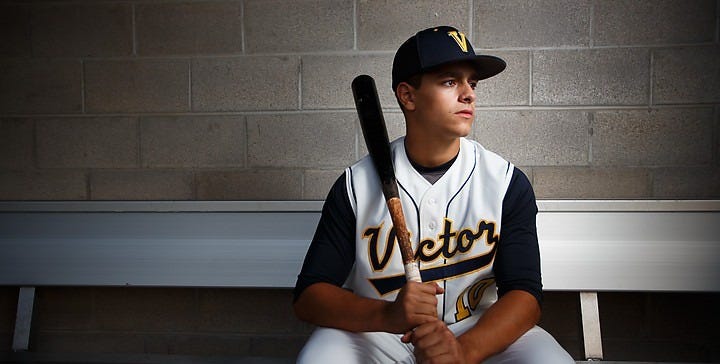What are college coaches really looking for in high school recruits?
Think "velocity," "bat speed," or "stats" are the things that will get you recruited? They will help, but coaches are looking for other things as well, including some things that might surprise you.
Over more than four decades of coaching baseball players, I’ve had countless conversations with college coaches about athletes, prospective recruits, what they want for their programs, the athletes who succeed, etc. They are looking for athleticism and baseball skills, of course. But they are also looking for some things that might surprise you — things that often separate those who get recruited from those who don’t.
Coaches aren’t always just looking for velo, power, speed, or glove skills. Here are nine additional things most coaches will consider before they decide to add you to their roster:
1. Projectability. Coaches aren’t just looking at who you are today—they’re imagining who you could be two years from now. Are you still growing? Do you have room to get stronger? How does your frame project? A 5'10", 150-pound sophomore with good movement patterns and solid mechanics might be more exciting to a coach than a filled-out senior with no upside.
2. Makeup and Maturity. Are you coachable? Do you respond well to failure? Do you compete? Coaches are investing in more than just skill—they're investing in a teammate. Body language, communication, and attitude go a long way in separating two equally talented players.
3. How will you represent their program? Coaches are very concerned about the type of players they put on their roster because each player is a reflection of the team, the coaches, and the university. If you are a high school player who can’t stay out of trouble in high school while you are living at home with your parents, what kind of person will you be when you are away from home and parental supervision? For that reason, many coaches will ask questions about character as often as they do about skills.
4. Skill Development Over Time. Coaches don’t expect you to be a finished product. But they do want to see growth. Are your numbers improving? Are you adding tools each season? Players who get better year-over-year are the ones who thrive in college programs.
5. Academic Fit. If you’re not academically eligible or competitive, a coach may not be able to recruit you—even if he loves your game. Keep your grades strong, and take the SAT/ACT seriously. Even if the NCAA relaxes standards, every school has specific standards for admission, and your grades can decide not only if you get a scholarship, but — at least in divisions other than D1 — for how much. Good grades serve another recruiting purpose as well — coaches know that good grades are typically the result of discipline and hard work, and those are two traits that all successful college athletes have in common.
6. Are you a teammate? There’s an old saying that says “One bad apple can ruin the barrel.” Coaches know that the chemistry in a locker room or dugout can have the same effect, so coaches are very careful to avoid, no matter how talented, a personality that will undermine the chemistry of the team. Baseball is a team sport, and coaches want players with a team-first mentality.
7. Discipline and work ethic. Are you first to practice, or are you consistently late? Do you work on your own to improve your skills? Do you actively work at getting better, faster, stronger? And remember — work ethic isn’t always just about practice. Coaches know that players with good bodies have a work ethic because they had to put in the work to be strong and fit. Also, good grades are an indicator of a strong work ethic, because good grades take work.
8. Communication skills. This is overlooked but critical. Coaches want players who can write a thoughtful email, return a phone call, and carry a respectful conversation. That doesn't mean you need to be polished like a job interview—but being genuine, articulate, and respectful matters.
9. Character. A coach once told me that he always checks a potential recruit’s social media presence because social media “will give me a clear look at his character.” As a player, you should remember that coaches will look at your social media before making an offer to you. Posts about racism, sexism, hate speech or negative comments about pretty much anyone will get you taken off recruiting lists. And you don’t have to write something like this to fall out of favor with a coach or school. Reposting or liking those types of posts will accomplish the same thing. And one more thing to remember about social media is this — it does not go away. Once posted, your opinions and comments — good, bad, or awful — live on forever.
Wrap-Up: Remember: One of the best things you can do as a recruit is to show a clear upward trajectory—athletically, academically, and personally. Be the kind of player, and the kind of person, a coach wants in the dugout for four years, not just someone who looks good at a showcase.
___________________________________
Thanks for reading Baseball Recruiting Insider!
If you like this content and you’d like to receive weekly posts about college baseball recruiting and how you can maximize your opportunities to get recruited, consider becoming a free or paid subscriber to receive new posts and other content about college baseball recruiting.


